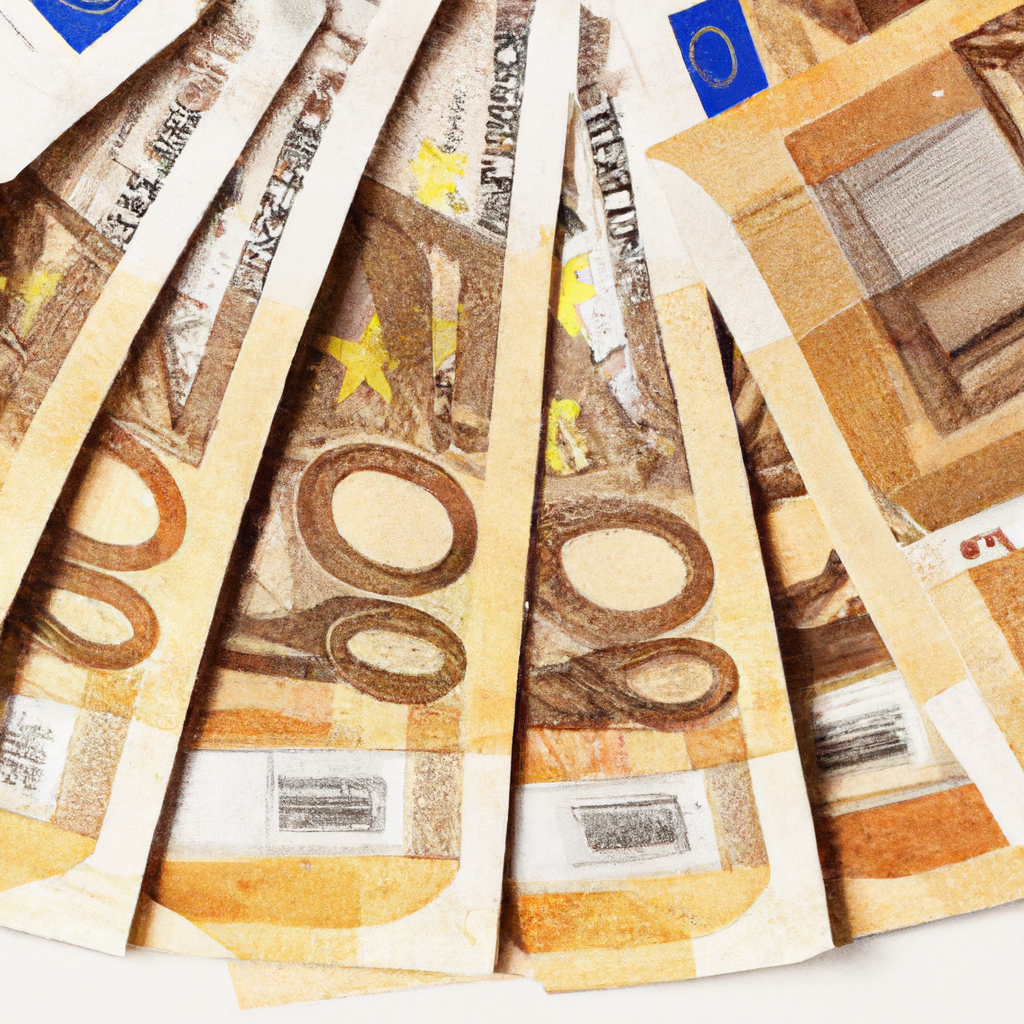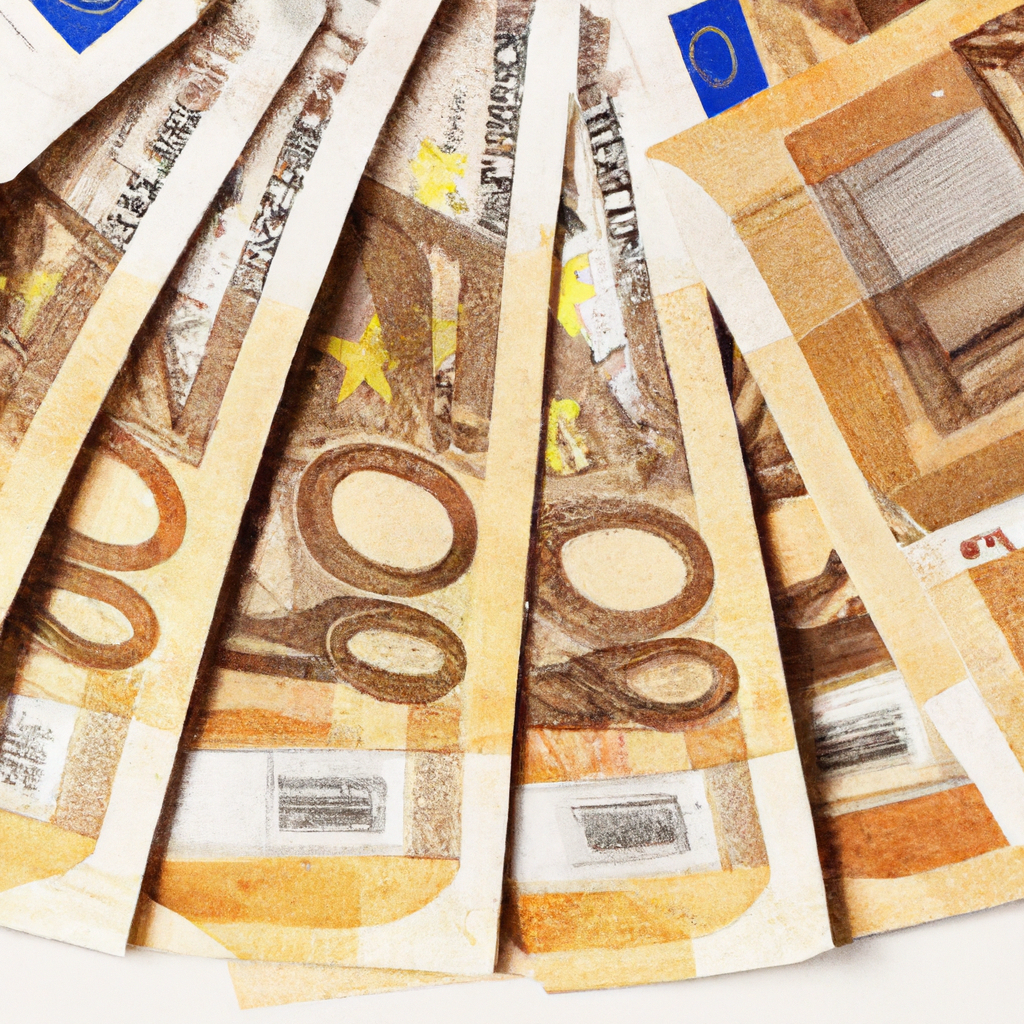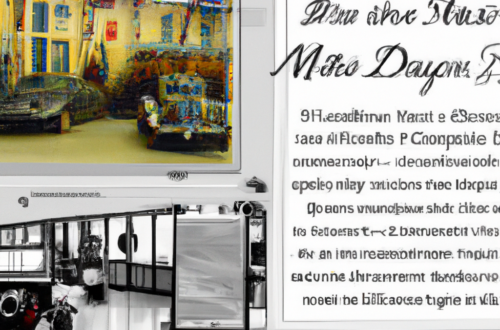
How Can I Exchange Currency Before Or During My Trip?
Planning a trip can be incredibly exciting, but one aspect that often leaves travelers feeling a bit perplexed is how to handle currency exchange. Whether you’re wondering about the best time to exchange your money or the most convenient methods to do so, this article will guide you through the process. From tips on finding favorable exchange rates to options for exchanging currency both before and during your trip, we’ve got you covered. So, before you embark on your next adventure, read on to ensure a smooth and hassle-free experience with currency exchange.

Currency Exchange Options Before Your Trip
Visit a Local Bank
Before your trip, one of the most convenient options for exchanging currency is to visit a local bank. Banks usually offer competitive exchange rates and can provide you with the currency you need. Simply go to your local branch and let them know which currency you require. They will be able to assist you in exchanging your money, ensuring you have the necessary cash for your trip.
Order Currency Online
Another option to consider before your trip is ordering currency online. Many banks and currency exchange providers offer online services that allow you to order the currency you need and have it delivered to your doorstep. This convenient option saves you time and effort, as you can order the currency from the comfort of your own home. Be sure to compare exchange rates and fees from different providers to get the best deal.
Use a Currency Exchange Service
Currency exchange services, also known as bureaux de change, are another option to consider before your trip. These services specialize in exchanging currency and often offer a wide range of currencies to choose from. They are often located in major cities and tourist areas, making them easily accessible. It is advisable to compare exchange rates and fees from different currency exchange services to ensure you get the most favorable deal.
Check with Your Credit Card Company
If you have a credit card, it is worth checking with your provider to see if they offer favorable exchange rates and low fees for international transactions. Some credit card companies have partnerships with foreign banks, allowing you to withdraw local currency from ATMs without incurring high fees. However, be aware that some credit cards may charge a foreign transaction fee for each purchase made abroad, so it is essential to consider this before relying solely on your credit card for currency exchange.
Consider Traveler’s Checks
Traveler’s checks are a safe and convenient option for exchanging currency before your trip. Essentially, they are pre-printed checks that can be used as a form of payment or exchanged for local currency. They offer security as they can be replaced if lost or stolen, and they are widely accepted in many countries around the world. However, traveler’s checks are not as commonly used or accepted as they once were, so it is important to check if they are a viable option for your destination.
Currency Exchange Options During Your Trip
Use ATMs
Using ATMs during your trip is often a convenient way to access local currency. Most countries have ATMs readily available, allowing you to withdraw cash in the local currency. Be sure to notify your bank or credit card company before your trip to ensure your cards will work in foreign ATMs. While using ATMs may incur fees, it is generally a secure and efficient way to obtain cash.
Exchange Currency at Hotels
Some hotels offer currency exchange services for guests. While this may be convenient, it is essential to be cautious of the exchange rates and fees charged by the hotel. In many cases, hotels may offer less favorable rates compared to other currency exchange options. If you choose to exchange currency at your hotel, it is advisable to inquire about the rates and fees beforehand to avoid any surprises.
Visit Local Banks
Similar to exchanging currency before your trip, visiting local banks during your travels is another option to consider for currency exchange. Local banks typically have competitive exchange rates and may offer a range of services such as cash withdrawals and currency exchange. It is best to research the availability of banks at your destination beforehand to ensure you have access to the currency you need.
Use Currency Exchange Booths
Currency exchange booths or kiosks are often found in airports, train stations, and popular tourist areas. These booths offer a quick and convenient way to exchange currency during your trip. However, it is important to be aware that currency exchange booths may have higher fees and less favorable exchange rates compared to other options. It is advisable to compare rates and fees before making a transaction at a currency exchange booth.
Consider Peer-to-Peer Currency Exchange
Peer-to-peer currency exchange platforms have gained popularity in recent years. These platforms connect individuals who need to exchange currency directly, allowing for potentially better exchange rates than traditional options. Peer-to-peer currency exchange can be done online or through mobile apps, offering convenience and the opportunity to negotiate rates. However, it is important to exercise caution and thoroughly research the platform or individual you are transacting with to ensure its credibility and security.

Factors to Consider when Choosing a Currency Exchange Option
Exchange Rates
When choosing a currency exchange option, exchange rates are an important factor to consider. The exchange rate determines how much of one currency you will receive in exchange for another. It is essential to compare exchange rates from different providers to ensure you are getting the best value for your money. Keep in mind that exchange rates fluctuate, so it is advisable to monitor them before making a decision.
Fees and Commissions
In addition to exchange rates, fees and commissions can significantly impact the overall cost of currency exchange. Different providers may charge varying fees for their services, whether it is through a fixed transaction fee or a percentage of the amount exchanged. It is crucial to consider these fees when choosing a currency exchange option to avoid unnecessary expenses.
Security and Privacy
Security and privacy should also be taken into account when exchanging currency. Ensure that the provider or institution you choose has appropriate security measures in place to protect your personal and financial information. It is advisable to opt for reputable and regulated institutions to minimize the risk of fraud or identity theft.
Availability and Accessibility
Consider the availability and accessibility of currency exchange options at your destination. Will local banks or currency exchange services be easily accessible? Are there ATMs readily available? It is important to research and plan ahead to ensure you can access the currency you need when you need it.
Accepted Payment Methods
Different currency exchange options accept different forms of payment. Some may only accept cash, while others may accept credit or debit cards. Consider what form of payment you prefer or have available and choose a currency exchange option that aligns with your needs.
Tips for Currency Exchange
Research the Current Exchange Rates
Before exchanging currency, it is crucial to research the current exchange rates. Exchange rates fluctuate daily, and being aware of the current rates can help you determine whether a particular option is offering a favorable rate or not. There are numerous online resources and currency converter tools available to assist you in monitoring exchange rates.
Avoid Exchanging Money at Airports
While it may be tempting to exchange currency at airports due to convenience, it is generally not the most cost-effective option. Airports often have higher fees and less favorable exchange rates compared to other currency exchange options. If possible, it is advisable to exchange a small amount of money for immediate expenses and then seek better rates elsewhere.
Notify Your Bank or Credit Card Company
Before traveling, notify your bank or credit card company of your upcoming trip to avoid any issues with accessing your funds. Informing your bank or card issuer of your travel plans will help prevent your transactions from being flagged as suspicious and potentially blocked. Additionally, inquire about any fees associated with international transactions to understand the costs involved.
Carry a Mix of Cash and Payment Cards
When traveling, it is wise to carry a mix of cash and payment cards for greater flexibility. Cash is essential for situations where card payments may not be accepted, such as small vendors or rural areas with limited card acceptance. On the other hand, payment cards provide convenience and security, enabling you to make purchases or withdraw cash as needed.
Keep Some Small Denominations for Immediate Expenses
Having small denominations of local currency on hand is useful for immediate expenses, such as taxi fares or small purchases. It is advisable to keep a separate stash of smaller bills to avoid the hassle of breaking larger bills for small transactions. This can also be helpful in countries where finding change for large bills may be challenging.

Risks and Precautions
Beware of Counterfeit Currency
When exchanging currency, especially in cash form, there is a risk of receiving counterfeit money. It is important to be vigilant and familiarize yourself with the security features of the currency you are receiving. Inspect the bills carefully, checking for watermarks, security strips, and other distinguishing features. If you suspect a bill is counterfeit, do not accept it and report it to the appropriate authorities.
Protect Your Personal Information
When exchanging currency, it is crucial to protect your personal and financial information. Be cautious when providing sensitive information to currency exchange providers or using online platforms. Ensure that the websites or platforms you are using are secure and reputable. Avoid sharing unnecessary personal information and be wary of phishing attempts or suspicious communications.
Avoid Shady Currency Exchange Services
Be cautious of currency exchange services that offer exceptionally high exchange rates or claim to have no fees. These may be signs of fraudulent or unregulated services. It is advisable to choose reputable institutions or providers with a track record of reliability and trustworthiness. Read reviews, check for proper licenses or certifications, and verify the legitimacy of the currency exchange service before proceeding.
Be Cautious of High Fees and Poor Rates
While it is important to consider fees and rates when choosing a currency exchange option, be wary of options that advertise extremely low fees or rates that seem too good to be true. These may be tactics to attract customers, but the actual rates or fees may be less favorable than initially presented. Always compare rates and fees and choose an option that offers a reasonable balance between affordability and quality of service.
Always Count Your Money
When exchanging currency, whether it is through a service, bank, or ATM, always count your money before leaving. Make sure the amount received matches what was expected, and be aware of any potential discrepancies. It is easier to address any issues immediately rather than discovering them later when it may be more difficult to rectify the situation.
Advantages and Disadvantages of Different Exchange Options
Advantages of Using Banks
- Banks usually offer competitive exchange rates.
- They tend to be reliable and secure institutions.
- Most banks have a wide range of currencies available for exchange.
- Banks may offer additional services such as currency withdrawal and wire transfers.
Disadvantages of Using Banks
- Banks may have limited availability in certain areas, especially in remote or less touristy locations.
- Some banks charge high transaction fees or commissions for currency exchange.
- The process of exchanging currency at a bank may take longer compared to other options.
Advantages of Ordering Currency Online
- Convenience of ordering currency from the comfort of your home.
- The ability to compare exchange rates and fees from different providers.
- Some online currency exchange services offer competitive rates and low fees.
- Delivery services allow you to receive the currency directly to your doorstep.
Disadvantages of Ordering Currency Online
- Delivery times may vary, and there is a risk of delays or mishandling during shipping.
- Online currency exchange may have minimum order requirements.
- Some providers may charge higher fees for online transactions compared to their physical locations.
Advantages of Using Currency Exchange Services
- Conveniently located in major cities and tourist areas.
- Usually have a wide range of currencies available for exchange.
- Some currency exchange services offer extended operating hours.
- Can provide immediate access to local currency when needed.
Disadvantages of Using Currency Exchange Services
- Currency exchange services may have less favorable exchange rates compared to other options.
- They often charge higher fees or commissions for their services.
- Some currency exchange services may lack transparency in their pricing.
Advantages of Using Credit Cards
- Convenience and ease of use, accepted in most establishments around the world.
- Some credit card companies offer competitive exchange rates.
- Can provide extra security features such as fraud protection.
- Credit cards provide a record of all transactions for easy tracking.
Disadvantages of Using Credit Cards
- Foreign transaction fees may apply for each purchase or ATM withdrawal made abroad.
- Not all establishments may accept credit cards, especially in remote or cash-based locations.
- Credit card theft or fraud can result in unauthorized charges and potential complications.
Advantages of Using ATMs
- ATMs are widely available in most countries.
- Convenient access to cash in the local currency.
- Some banks have partnerships with foreign institutions, allowing for lower fees or no fees for withdrawals.
- Allows flexibility to withdraw cash as needed.
Disadvantages of Using ATMs
- Transaction fees may apply for each withdrawal, depending on your bank or card issuer.
- Some ATMs may have withdrawal limits, requiring multiple transactions for larger amounts.
- Availability of ATMs may be limited in remote or less touristy areas.
Understanding Exchange Rates
What are Exchange Rates?
Exchange rates refer to the value of one currency relative to another. They determine how much of one currency you will receive in exchange for a certain amount of another currency. Exchange rates can be either fixed or floating, depending on the monetary system of the countries involved.
Different Types of Exchange Rates
There are various types of exchange rates, including spot rates, forward rates, and real exchange rates. Spot rates refer to the current exchange rates at a particular moment. Forward rates, on the other hand, are agreed upon today but with the actual exchange taking place in the future. Real exchange rates take into account inflation and reflect the purchasing power of currencies.
Factors that Affect Exchange Rates
Exchange rates are influenced by several factors, including interest rates, inflation, economic stability, political events, and market speculation. Economic indicators such as GDP growth, employment rates, and monetary policies can significantly impact exchange rates. Additionally, geopolitical tensions or unexpected events can cause currency fluctuations.
How to Get the Best Exchange Rate
To get the best exchange rate, it is advisable to compare rates from different providers and monitor the rates over time. Consider exchanging currency when rates are favorable, taking advantage of any dips or fluctuations. However, keep in mind that trying to time the market perfectly is challenging, so striking a balance between a favourable rate and your travel needs is key.
Monitoring Exchange Rates
Monitoring exchange rates can be done through various online resources, currency converter tools, or financial apps that provide real-time rate updates. It is beneficial to set up rate alerts or notifications to stay informed of any significant changes. This allows you to make informed decisions and choose the best time to exchange currency.
Considerations for Specific Destinations
Currency Exchange in Europe
When traveling to Europe, it is generally advisable to exchange currency upon arrival. Using ATMs is a convenient option as they are widely available. Many European countries use the euro as their currency, making it easy to exchange currency in most places. However, be cautious of exchange rates and fees at airports and tourist areas, as they may not offer the best rates.
Currency Exchange in Asia
Asia offers a diverse range of currency exchange options. Larger cities and tourist areas typically have numerous banks, ATMs, and currency exchange services readily available. Many Asian countries also accept major international credit cards. It is advisable to research specific countries and their preferred exchange methods to ensure you have the necessary currency.
Currency Exchange in South America
South America has varying currency exchange options depending on the country you are visiting. It is advisable to research the local currency of each destination and plan accordingly. Some countries may have limited availability of currency exchange services, so it is essential to be prepared by exchanging currency before arrival or ensuring access to ATMs or banks.
Currency Exchange in Africa
Currency exchange options in Africa can vary significantly depending on the country and region. Major cities and tourist areas usually have banks, ATMs, and currency exchange services available. However, in more remote or rural areas, access to currency exchange services may be limited. It is advisable to research the specific destination to determine the best currency exchange options.
Currency Exchange in Oceania
Oceania, including countries such as Australia and New Zealand, offers various currency exchange options. Major cities have a range of banks, ATMs, and currency exchange services available. It is advisable to exchange currency in advance or utilize ATMs for better rates. Additionally, credit cards are widely accepted in most establishments.
Alternatives to Currency Exchange
Using Prepaid Travel Cards
Prepaid travel cards, also known as currency cards, are a popular alternative to traditional currency exchange methods. These cards allow you to load multiple currencies onto a single card, providing convenience and flexibility. Prepaid travel cards often offer competitive exchange rates and can be used like a debit or credit card. However, be aware of any fees associated with reloading the card or using it for ATM withdrawals.
Using Mobile Payment Apps
Mobile payment apps, such as PayPal or mobile banking apps, can be a convenient way to make payments or transfer money internationally. These apps often offer competitive exchange rates and can be used for peer-to-peer transactions or paying merchants. However, it is important to ensure that the app is widely accepted at your destination and that you have a reliable internet connection for smooth transactions.
Using Cryptocurrencies for Travel
Cryptocurrencies, such as Bitcoin or Ethereum, are gaining popularity as a decentralized alternative for currency exchange. Some travel service providers and merchants accept cryptocurrencies as a form of payment during travel. However, it is essential to research the acceptance and regulations of cryptocurrencies in your destination. Cryptocurrencies can be volatile, so it is crucial to consider the potential risks before relying on them for travel expenses.
Conclusion
When it comes to currency exchange before or during your trip, you have various options to consider. Visiting a local bank, ordering currency online, using currency exchange services, checking with your credit card company, and considering traveler’s checks are all viable options before your trip. During your trip, you can use ATMs, exchange currency at hotels, visit local banks, use currency exchange booths, or even explore peer-to-peer currency exchange. It is important to consider factors such as exchange rates, fees and commissions, security and privacy, availability and accessibility, and accepted payment methods when choosing an exchange option. By following tips such as researching current exchange rates, avoiding exchanging money at airports, notifying your bank or credit card company, carrying a mix of cash and payment cards, and keeping small denominations for immediate expenses, you can maximize your currency exchange experience. It is also important to be aware of the risks and precautions, including counterfeit currency, protecting personal information, avoiding shady currency exchange services, being cautious of high fees and poor rates, and always counting your money. Each exchange option has its advantages and disadvantages, and understanding exchange rates is crucial in making informed decisions. Considerations for specific destinations, alternatives to currency exchange such as prepaid travel cards and mobile payment apps, and the use of cryptocurrencies for travel provide additional options to explore. With careful planning and consideration, you can navigate the world of currency exchange and ensure that you have the necessary funds for a smooth and enjoyable trip.




